![Dixon, Bill: Odyssey (Solo Works) [6 CD BOX SET] (Archive Edition) Dixon, Bill: Odyssey (Solo Works) [6 CD BOX SET] (Archive Edition)](https://www.teuthida.com/productImages/misc4/25743.jpg)
This 2001 limited 6-CD box set of late trumpeter Bill Dixon's solo work in 5 CDs plus 1 CD of Dixon speaking, including two 32-page booklets containing essays, interviews, & writings, plus reproductions of 13 Dixon paintings, along with 3 inserts; an essential example of Dixon's incredible creative output, the final copies of which were recently discovered and available one last time.
Out of Stock
Quantity in Basket: None
Log In to use our Wish List
Shipping Weight: 24.00 units
Sample The Album:
Bill Dixon-trumpet, flugelhorn, piano
Click an artist name above to see in-stock items for that artist.
Includes postcard
UPC: 769791969346
Label: Archive Edition
Catalog ID: AE 51019251CD
Squidco Product Code: 25743
Format: 6 CDs
Condition: New
Released: 2001
Country: USA
Packaging: Box Set - 6 CDs
Recorded at IMBSRP (Institute of Black Music Studies, Research & Performance),
except tracks 1-10 and 1-11, recorded in New York City, 1970-71 by IMBSRP,
except tracks 1-10 and 1-11, recorded in New York City, 1970-71 by IMBSRP, track 3-1, recorded in Jerusalem, Israel, 1990 by the Institute of Contemporary Music,
except tracks 1-10 and 1-11, recorded in New York City, 1970-71 by IMBSRP, and tracks 6-1 to 6-22, recorded at Northern Track Recording Studios, Wilmington, VT.
"Odyssey is the definitive compendium of solo trumpet music by Bill Dixon, as compiled by the artist. Dixon (1925-2010) was known primarily for his small and large ensemble masterpieces of the decades between Intents and Purposes (1967) and Tapestries (2009).
While he appeared infrequently in solo performances, he was continually evolving in studio through these years a remarkably nuanced and powerful solo music -- especially during the mid-1970s, as a counterpart to daily work with student orchestras on large ensemble pieces. Small offerings of these solo gems were published relatively obscurely in the early 1980s in Italy, and a larger batch were hand selected by the composer for a two-LP collection in 1985.
In 2000, Dixon gathered into Odyssey the entirety of his oeuvre for solo trumpet, adding more than two hours of further solo pieces, and a small number of additional duet recordings. The tracks were selected and sequenced by Mr. Dixon, who curated the entireproject for release on his own label, Archive Edition. Veteran engineer Kevin Reeves (Capitol, Universal; Grammy-nominated for Revenant (2015) work) mastered from original tapes exclusively, deriving unprecedented clarity on these exquisite recordings.
The set spans five CDs of trumpet solos and one full disc of Dixon's enigmatic spoken commentary for the project. Two printed folios are also in the box: In one are further emphatic annotations by Dixon ensemble veterans Stephen Horenstein and Jason Zappa, and historian Ben Young; and the Dixon interview with journalist Graham Taylor-Lock. A second full-color folio Works on Paper reproduces 13 of Dixon's stunning ink and acrylic visual creations, mostly from the late 1990s, and unpublished prior to this set.
Recordings span 1970-92, made primarily in Dixon's studio In Bennington, Vermont, with earlier examples from New York, and a later solo performance from Israel. Also included are Dixon's only released works for solo piano, the full set of "Relay" duets for his own piano and trumpet, an excerpt of the 1971 magnum opus "Summerdance", featuring drummers Laurence Cook and David Moss, and one preferred example of the duets with keyboardist Leslie Winston.
Odyssey was released in 2001 -- assembled on the highest artistic level, according to Bill Dixon's production standards. It also has been subject to DIY distribution since that time, so in many ways this 2018 re-launch will be a first hearing for many."-Archive Edition
Includes postcard
Artist Biographies
• Show Bio for Bill Dixon "Bill Dixon (October 5, 1925 Ð June 16, 2010) was an American musician, composer, visual artist, and educator. Dixon was one of the seminal figures in the free jazz movement. He played the trumpet, flugelhorn, and piano, often using electronic delay and reverberation. Dixon hailed from Nantucket, Massachusetts. His family later moved to Harlem, New York City when he was about 7. His studies in music came relatively late in life, at the Hartnette Conservatory of Music (1946Ð1951). He studied painting at Boston University and the WPA Arts School and the Art Students League. During the early 1950s he had a job at the United Nations, and founded the UN Jazz Society. In the 1960s Dixon established himself as a major force in the jazz avant-garde movement. In 1964, Dixon organized and produced the 'October Revolution in Jazz', four days of music and discussions at the Cellar CafŽ in Manhattan. The participants included notable musicians Cecil Taylor and Sun Ra among others. It was the first free-jazz festival of its kind. Dixon later founded the Jazz Composers Guild, a cooperative organization that sought to create bargaining power with club owners and effect greater media visibility. He was relatively little recorded during this period, though he co-led some releases with Archie Shepp and appeared on Cecil Taylor's Blue Note record Conquistador! in 1966. In 1967, he composed and conducted a score for the United States Information Agency film The Wealth of a Nation, produced and directed by William Greaves. He was Professor of Music at Bennington College, Vermont, from 1968 to 1995, where he founded the college's Black Music Division. From 1970 to 1976 he played "in total isolation from the market places of this music", as he puts it. Solo trumpet recordings from this period were later released by Cadence Jazz Records, and later collected on the self-released multi-CD set Odyssey along with other material. He was one of four featured musicians in the Canadian documentary Imagine the Sound (along with Cecil Taylor, Archie Shepp, and Paul Bley), 1981. In recent years he recorded with Cecil Taylor, Tony Oxley, William Parker, Rob Mazurek, and many others. Dixon's playing was noted for his extensive use of the pedal register, playing below the trumpet's commonly ascribed range, and well into the trombone and tuba registers. He made extensive use of half-valve techniques and the use of breath with or without engaging the traditional trumpet embouchure. He largely eschewed the use of mutes, the exception being his use of the harmon mute, with or without stem. On June 16, 2010, Bill Dixon died in his sleep at his home after suffering from an undisclosed illness." ^ Hide Bio for Bill Dixon
4/9/2025
Have a better biography or biography source? Please Contact Us so that we can update this biography.
Track Listing:
CD1
1. When Winter Comes (1976) 8:15
2. Webern Work Study (1973-74) 1:14
3. Tracings II (1974-75) 1:22
4. The Long Walk (1974-75) 7:44
5. Momenti (1974-75) 2:42
6. Stanza (1976) 5:00
7. I See Your Fancy Footwork #1 (1973) 8:05
8. I See Your Fancy Footwork #2 (1973) 5:28
9. I See Your Fancy Footwork #3 (1973) 2:52
10. Mosaic (1970-71) 0:43
11. Albert Ayler (1970-71) 0:59
12. Summerdance - Part 1 (1971) 8:28
13. Tracings (1974) 9:00
14. The Long Line (1973-74) 5:44
15. Swirls (1974-75) 2:29
CD2
1. Requiem For Booker Little (1975-76) 5:07
2. Masques I (1975-76) 8:38
3. The End Of Silence (1973) 0:59
4.Odyssey/Interruptus (1974) 5:35
5. Murmurs (1974) 6:46
6. Flame (1971-82) 3:09
7. Meta-pedal (1981-82) 6:11
8. Elegantissmo (1992) 9:51
9. Changes (1973) 2:54
10. Dominoes (1973) 2:52
11. Pyramide (1973) 3:57
12. Long Alone Song (1974) 6:34
13. Shrike (1973) 0:57
CD3
1. Jerusalem (1990) 26:50
2. Umbra E Luce - For Sid Makay (1973) 11:31
3. The Somnambulist (1973-74) 4:08
4. Conncordde (1974-75) 4:37
5. Fortunata (1970) 8:13
6. Graffiti Sui Soffiti 1:51
CD4
1. Postcards (1970) 5:56
2. For Wallace Thurman (1973) 4:22
3. Pensieroso (1973) 1:01
4. Masai (1973) 1:04
5. Sttretta (1973) 1:40
6. Chalk Circle - Blue (1973) 2:39
7. Shadowland (1973) 6:25
8. Spaces (1973) 1:18
9. The Cloisters (1973) 2:06
10. Chromma (1973) 1:34
11. Sketch For Ernie Chritchlow (1973) 3:56
12. More Than Something (1973) 1:36
13. Manuscripts For Fathers & Sons (1973) 4:22
14. Poemm Per I Delicati (1973) 1:48
15. Circle Chalk - Red (1973) 5:26
16. Hush (1970) 3:59
CD5
1. Relay - Dance #1 (1970) 9:41
2. Relay - Dance #3 (1970) 2:10
3. Relay - Dance #4 (1970) 2:45
4. Relay - Dance #5 (1970) 3:21
5. Relay - Dance #6 (1970) 4:35
6. Relay - Dance #7 (1970) 6:20
7. Relay - Dance #8 (1970) 5:53
8. Relay - Dance #2 (1970) 1:47
9. Chiasmus (1970) 7:17
10. Shards (1970) 1:50
11. Pasquinade (1970) 6:00
CD6br>
1. Introduction To The Questions 1:03
2. How Do You Call The Music You Play? 6:26
3. Does Your Music Express A General Conception? 1:54
4. Do You Think Before Or During Improvisation? 0:47
5. Is Swing Important? 0:45
6. Do You Enjoy Playing? 1:08
7. Is Beauty Your Goal? 0:36
8. What Is Freedom In Music? 2:28
9. Are You Able To Make A Living From Music? 0:54
10. What Would You Like To Do In The Near Future? 2:08
11. How Do You See The Future? 2:05
12. Odyssey Preface 2:19
13. Teaching 14:25
14. The Solo 0:32
15. The Odyssey Solo Work 2:42
16. Teaching In Madison, 1971-72 11:57
17. Genesis Of The Solos 3:45
18. Solos: Craft And Language 1:35
19. Solos: Notation And Spatiality 3:19
20. Solos: Composing Oneself And Composition 3:25
21. Solos: Philosophy And Communication 4:25
22. Conclusion 1:46
Box Sets
Improvised Music
Free Improvisation
Jazz
Recordings featuring brass instruments - trumpets, trombones, tubas, other horns
Solo Artist Recordings
Staff Picks & Recommended Items
Search for other titles on the label:
Archive Edition.


![Dixon, Bill: Odyssey (Solo Works) [6 CD BOX SET] (Archive Edition) Dixon, Bill: Odyssey (Solo Works) [6 CD BOX SET] (Archive Edition)](https://www.teuthida.com/productImages/full/25743.Full.jpg)

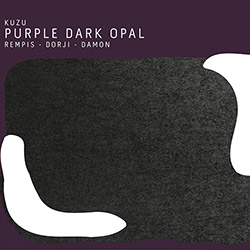
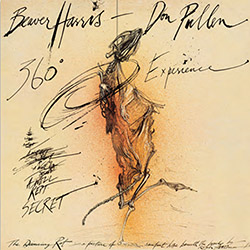



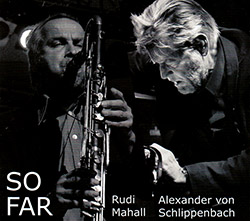




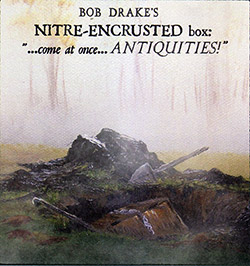
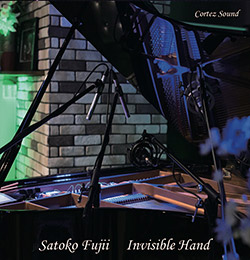
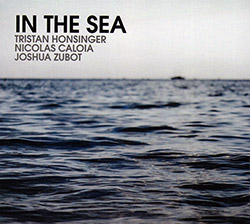
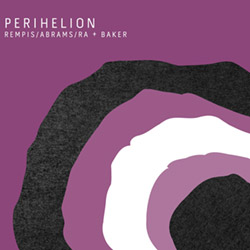

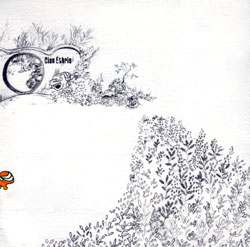



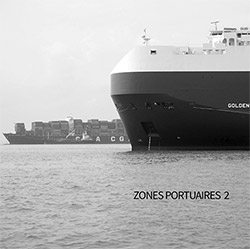
![111 (Michelle / Villamil): Live at Opus 40 [CASSETTE]](https://www.teuthida.com/productImages/misc4/35986.jpg)
![del Pino, Francisco / Charlotte Mundy: The Sea [CASSETTE]](https://www.teuthida.com/productImages/misc4/35987.jpg)

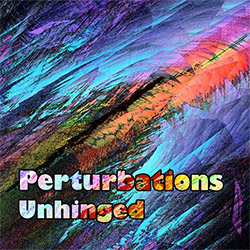

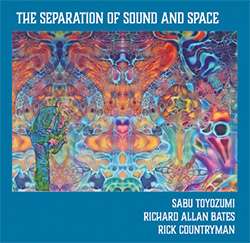
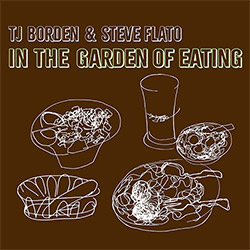

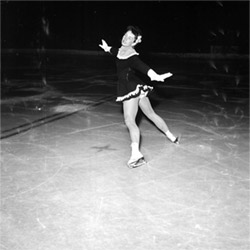
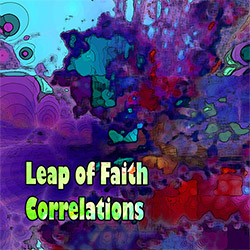

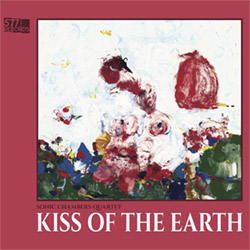

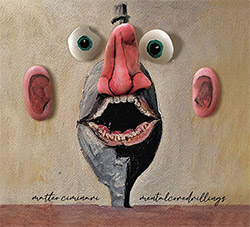
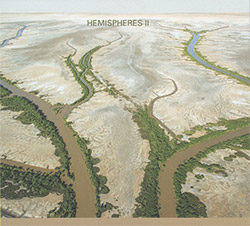
![Niblock, Phill / Anna Clementi / Thomas Stern: Zound Delta 2 [VINYL]](https://www.teuthida.com/productImages/misc4/34623.jpg)
![Yoko, Ono / The Great Learning Orchestra: Selected Recordings From Grapefruit [2 CDs]](https://www.teuthida.com/productImages/misc4/35841.jpg)

![Brotzmann, Peter / John Edwards / Steve Noble / Jason Adasiewicz: The Quartet [2 CDs]](https://www.teuthida.com/productImages/misc4/35975.jpg)
![Brotzmann, Peter / John Edwards / Steve Noble / Jason Adasiewicz: The Quartet [VINYL 2 LPs]](https://www.teuthida.com/productImages/misc4/35976.jpg)
![Thomas, Pat: The Solar Model of Ibn-Al Shatir [VINYL]](https://www.teuthida.com/productImages/misc4/36044.jpg)
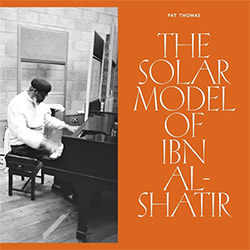



![Rodrigues, Ernesto / Nuno Torres / Guilherme Rodrigues: Whispers In The Moonlight - In Seven Movements [2CDs]](https://www.teuthida.com/productImages/misc4/35765.jpg)



![Cocks, Laura: FATHM [VINYL]](https://www.teuthida.com/productImages/misc4/36055.jpg)













![Schindler, Udo / Sandy Ewen / Damon Smith: Munich Sound Studies Vols. 4, 5 & 6 [3 CDs]](https://www.teuthida.com/productImages/misc4/35966.jpg)
![Turbulence Orchestra & Sub-Units: Smear Out the Difficulties (Double Live) [2 CDs]](https://www.teuthida.com/productImages/misc4/36048.jpg)

![Myers, David Lee : Tin Drop Tear [BOOK w/ DOWNLOAD]](https://www.teuthida.com/productImages/misc4/36030.jpg)

![Ackerley / Prymek / Turner: All Hope With Sleeping Minds [CASSETTE]](https://www.teuthida.com/productImages/misc4/35950.jpg)








![Olencki, Weston : Pearls Ground Down To Powder [VINYL]](https://www.teuthida.com/productImages/misc4/35956.jpg)
![Myers, David Lee: Oculus [2CDs]](https://www.teuthida.com/productImages/misc4/35857.jpg)


![dustsceawung: dustsceawung [CASSETTE w/ Download]](https://www.teuthida.com/productImages/misc4/35753.jpg)




![Halls of the Machine: Atmospheres For Lovers And Sleepers [CASSETTE w/ DOWNLOAD]](https://www.teuthida.com/productImages/misc4/35806.jpg)











![Zorn, John / JACK Quartet: The Complete String Quartets [2 CDs]](https://www.teuthida.com/productImages/misc4/35609.jpg)

![Lonsdale, Eden: Dawnings [2 CDs]](https://www.teuthida.com/productImages/misc4/35480.jpg)







![Sanna, Claudio: Compositori Sardi Contemporanei II [2 CDs]](https://www.teuthida.com/productImages/misc4/35317.jpg)







![Zurria, Manuel: Fame di Vento [3 CDs]](https://www.teuthida.com/productImages/misc4/35167.jpg)

![Electric Bird Noise / Derek Roddy: 8-10-22 [CD EP]](https://www.teuthida.com/productImages/misc4/35970.jpg)








![Elephant9 : Mythical River [VINYL]](https://www.teuthida.com/productImages/misc4/34624.jpg)



![Elephant9 with Terje Rypdal: Catching Fire [VINYL 2 LPs]](https://www.teuthida.com/productImages/misc4/35355.jpg)
![Deerlady (Obomsawin, Mali / Magdalena Abrego): Greatest Hits [VINYL]](https://www.teuthida.com/productImages/misc4/34876.jpg)







![Surplus 1980: Illusion of Consistency [CD]](https://www.teuthida.com/productImages/misc4/35069.jpg)
![Staiano, Moe: Away Towards the Light [VINYL + DOWNLOAD]](https://www.teuthida.com/productImages/misc4/35037.jpg)



![Caveira (Gomes / Sousa / Abras / Ferrandini): Ficar Vivo [VINYL]](https://www.teuthida.com/productImages/misc4/34643.jpg)
![Coley, Byron: Dating Tips for Touring Bands [VINYL]](https://www.teuthida.com/productImages/misc4/17906.jpg)

![Lost Kisses: My Life is Sad & Funny [DVD]](https://www.teuthida.com/productImages/misc4/lostKissesDVD.jpg)